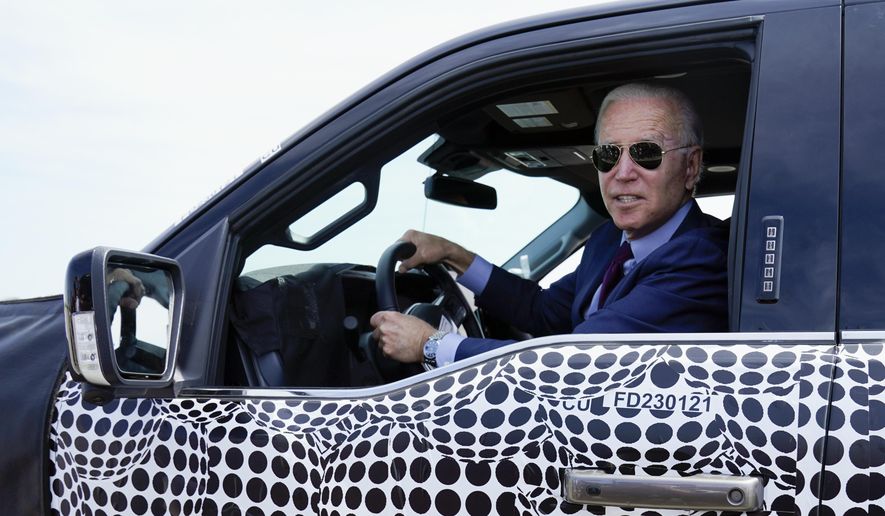House Democrats blocked an attempt by Republicans to means-test the electric vehicle tax credits in President Biden’s $3.5 trillion social welfare and climate change package, drawing criticism that the subsidies will only benefit the wealthy.
In a late night hearing of the House Energy and Commerce Committee, Democrats killed an amendment by Rep. Larry Bucshon that would have prohibited individuals making more than $100,000 a year from qualifying for tax credits or subsidies for electric vehicles or charging stations. The amendment would also have prevented the federal government from subsidizing purchases larger than $40,000.
“I support electric vehicles,” said Mr. Bucshon, an Indiana Republican. “However, the subsidies we are considering here today are vague about incentives for [electric vehicles] and charging infrastructure … and they could allow the wealthy to reap benefits from the American taxpayers simply by purchasing [electric vehicles].”
In arguing for the amendment, Mr. Bucshon noted that studies found that wealthy individuals already disproportionately use electric vehicle tax credits. A 2018 report by the Pacific Research Institute determined that nearly 80% of electric vehicle plug-in tax credits went to households with an adjusted gross income greater than $100,000 per year.
“The wealthiest individuals in this country don’t need a handout from the American taxpayer for buying an expensive electric vehicle,” Mr. Bucshon said. “Why not make sure the incentives are targeted to those Americans that truly need the help the most?”
Democrats disagreed and killed the amendment in a party-line committee vote.
“I’m a car girl. Born and raised in the heart of the auto industry,” said Rep. Debbie Dingell, a Michigan Democrat who serves on the committee. “But 29% of U.S. [greenhouse gas] emissions are transportation-related and we need to do better.”
Mr. Biden proposed significant incentives for people to buy electric vehicles as part of his proposed $3.5 trillion expansion of the federal safety net. The White House argues the transition to electric vehicles is key to combating climate change and reaching Mr. Biden’s commitment to reducing greenhouse gas emissions by more than 50% over the next decade.
“Look, the future of the auto industry is electric. There’s no turning back,” Mr. Biden said during a visit to a Ford Motor Co. electric vehicle plant in Michigan earlier this year. “We’re going to set a new pace for electric vehicles.”
The biggest detriment to transitioning away from gas-powered cars is the cost.
Last year, Car and Driver magazine reported that the base price of a compact gasoline-powered car was significantly lower than its electric counterpart.
The price of a Mini Cooper averaged around $24,000, while the cost of its electric counterpart ranged upwards of $30,000. The base price for a conventional Ford F-150 starts around $28,000, but the “entry model” electric version will be priced at more than $39,000.
• Haris Alic can be reached at halic@washingtontimes.com.




Please read our comment policy before commenting.